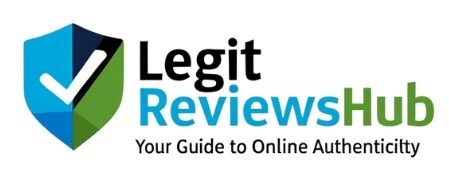Is Zillow Legit? An In-Depth Look at the Popular Real Estate Platform

In today’s digital age, Zillow has become a household name in the real estate industry. But with its growing influence comes the question: Is Zillow legit? The short answer is yes, Zillow is a legitimate company providing valuable services to home buyers, sellers, and renters. However, like any platform, it has its strengths and weaknesses that users should be aware of. This comprehensive guide will explore Zillow’s legitimacy, features, and impact on the real estate market.
What is Zillow?
Zillow is an online real estate marketplace that has revolutionized how people buy, sell, and rent properties. To understand its legitimacy, we need to delve into its history and how it operates.
Zillow’s History and Growth
Founded in 2006 by former Microsoft executives Rich Barton and Lloyd Frink, Zillow started as a website that aimed to make real estate data more accessible to the public. The company’s name is a combination of “zillions” of data points and “pillow,” suggesting the comfort of home.
Since its inception, Zillow has experienced exponential growth:
- 2006: Zillow launches with its flagship Zestimate feature
- 2008: Introduces mobile apps
- 2011: Goes public on NASDAQ
- 2015: Acquires Trulia, another major real estate website
- 2018: Launches Zillow Offers, an iBuying program
- 2021: Ends Zillow Offers program, refocuses on core business
Today, Zillow is one of the most visited real estate websites in the United States, with millions of users accessing its services every month.
How Zillow Works
Zillow operates as an online database and marketplace for real estate. It aggregates listing data from multiple sources, including:
- Multiple Listing Services (MLS)
- Real estate agents and brokers
- For-sale-by-owner listings
- Rental property managers
Users can search for properties, view estimated home values, and connect with real estate professionals through the platform. Zillow makes money primarily through advertising and its Premier Agent program, which we’ll discuss in detail later.
Zillow’s Core Features
To assess Zillow’s legitimacy, it’s crucial to understand its main features and how they benefit users.
Property Listings
Zillow’s extensive database of property listings is one of its most valuable features. Users can:
- Search for homes by location, price, size, and other criteria
- View detailed property information, including photos and virtual tours
- See price history and tax information
- Contact listing agents or property owners directly
The platform updates listings frequently, but it’s important to note that some information may not be real-time due to delays in data synchronization.
Zestimate: Zillow’s Home Value Estimator
One of Zillow’s most well-known and controversial features is the Zestimate. This automated valuation model uses proprietary algorithms to estimate a home’s market value based on:
- Public and user-submitted data
- Recent sales of similar properties
- Home characteristics
- Market trends
While Zestimates can provide a rough idea of a home’s value, they are not always accurate and should not be considered an official appraisal.
Zillow Offers
Although Zillow discontinued its Zillow Offers program in 2021, it’s worth mentioning as it was a significant part of the company’s business model. The program allowed homeowners to sell their properties directly to Zillow for cash offers. While convenient, it faced challenges with pricing accuracy and operational costs, leading to its closure.
The Legitimacy of Zillow’s Data
One of the most critical aspects of Zillow’s legitimacy is the accuracy and reliability of its data. Let’s examine this in detail.
Accuracy of Zillow Listings
Zillow’s property listings are generally accurate, but there can be discrepancies:
Pros:
- Large database with millions of listings
- Regular updates from multiple sources
- User ability to claim and update their own property information
Cons:
- Potential delays in reflecting sold or off-market properties
- Occasional inaccuracies in property details
- Reliance on third-party data sources
To ensure accuracy, users should always verify listing information with the property’s listing agent or owner.
Reliability of Zestimates
Zestimates are a popular but often misunderstood feature:
Pros:
- Provides a quick estimate of home values
- Uses a complex algorithm considering multiple factors
- Regularly updated to reflect market changes
Cons:
- Not always accurate, especially in unique or rapidly changing markets
- Doesn’t account for property condition or recent renovations
- Can be influenced by user-submitted data, which may be inaccurate
Zillow itself acknowledges that Zestimates have a median error rate of around 2-3% for on-market homes and 7-8% for off-market homes. It’s essential to use Zestimates as a starting point rather than a definitive valuation.
User-Generated Content and Its Impact
Zillow allows users to contribute information, which can both enhance and potentially compromise data quality:
Pros:
- Provides up-to-date information from homeowners
- Allows for the addition of details not available in public records
- Enhances the richness of property profiles
Cons:
- Potential for biased or inaccurate information
- Requires moderation to prevent spam or malicious content
- May lead to discrepancies with official records
Zillow has systems in place to verify user-submitted information, but users should still approach this content with a critical eye.
Zillow for Buyers: Pros and Cons
Zillow has become a go-to resource for many home buyers. Let’s explore its advantages and potential drawbacks.
Benefits of Using Zillow as a Home Buyer
- Extensive property database: Access to millions of listings in one place
- User-friendly interface: Easy to search and filter properties
- Detailed property information: Photos, virtual tours, price history, and more
- Zestimate tool: Provides a ballpark figure for home values
- Neighborhood insights: School ratings, local amenities, and crime data
- Mobile app: Convenient for on-the-go searching
- Saved searches and alerts: Notifications for new listings matching criteria
Potential Drawbacks for Buyers
- Listing delays: Some properties may be sold before appearing as such on Zillow
- Incomplete information: Not all listings have comprehensive details
- Zestimate inaccuracies: Can lead to unrealistic price expectations
- Limited direct access to sellers: Most communication goes through agents
- Potential for scams: Fake listings can sometimes slip through
- Overwhelming options: The sheer volume of listings can be daunting
To use Zillow effectively as a buyer, it’s crucial to:
- Verify information with listing agents
- Use Zillow in conjunction with other resources
- Be aware of potential scams and protect personal information
Zillow for Sellers: Advantages and Disadvantages
Zillow offers various tools for sellers, but it’s important to understand how they compare to traditional methods.
Selling Your Home on Zillow
Advantages:
- Wide exposure: Access to millions of potential buyers
- Free listings: No cost to list For Sale By Owner (FSBO)
- Detailed property showcase: Ability to add extensive information and media
- Price guidance: Zestimate and comparable sales data
- Direct communication: Option to interact directly with potential buyers
- Flexibility: Can switch to agent-assisted selling if desired
Disadvantages:
- Limited support: Less guidance compared to working with a real estate agent
- Pricing challenges: Relying on Zestimates can lead to mispricing
- Time commitment: Managing inquiries and showings can be time-consuming
- Negotiation difficulties: Lack of professional representation in deals
- Legal risks: Potential for errors in complex real estate transactions
- Lower visibility: Agent-listed homes may receive preferential treatment
Zillow’s Impact on Traditional Real Estate Practices
Zillow has significantly influenced the real estate industry:
- Increased transparency: Making property data widely available
- Changed consumer expectations: Buyers expect instant access to information
- Altered marketing strategies: Agents must adapt to online-first approaches
- Disrupted traditional broker models: Challenged the role of traditional agents
- Empowered FSBO sellers: Provided tools for independent selling
- Shift in lead generation: Agents now compete for online leads
While Zillow has brought many changes, it hasn’t completely replaced traditional real estate practices. Many buyers and sellers still value the expertise and personal touch of real estate professionals.
Zillow for Renters: Is It a Trustworthy Platform?
Zillow has become a popular platform for renters, but it’s important to understand its strengths and potential pitfalls.
Finding Rentals on Zillow
Pros:
- Large selection: Extensive database of rental listings
- Detailed filters: Easy to narrow down options based on preferences
- Neighborhood information: Insights into local amenities and communities
- Price comparison: Ability to gauge market rates in specific areas
- Application tools: Online rental applications and credit reports
- Communication platform: Direct messaging with landlords or property managers
Cons:
- Outdated listings: Some properties may no longer be available
- Incomplete information: Not all listings provide comprehensive details
- Limited verification: Potential for fraudulent listings
- Competition: Popular rentals may receive numerous applications
- Fees for services: Some features, like applications, may incur costs
Potential Rental Scams and How to Avoid Them
While Zillow strives to maintain a safe platform, rental scams can occur. Common scams include:
- Bait-and-switch tactics: Advertising one property but showing another
- Phantom rentals: Listing properties that don’t exist or aren’t for rent
- Hijacked ads: Scammers posing as legitimate landlords
- Requiring fees before viewing: Asking for application fees or deposits upfront
To protect yourself:
- Never wire money or provide sensitive information before seeing a property
- Verify the landlord’s identity and ownership of the property
- Be wary of deals that seem too good to be true
- Use Zillow’s built-in messaging system for communication
- Report suspicious listings to Zillow
Zillow’s Business Model: How Does It Make Money?
Understanding Zillow’s revenue streams can provide insight into its motivations and potential biases.
Advertising Revenue
Zillow’s primary source of income is advertising:
- Display ads: Traditional banner ads on the website and app
- Sponsored listings: Featured properties that appear at the top of search results
- Native advertising: Ads that blend in with regular content
This model allows Zillow to offer free services to most users while generating revenue from businesses wanting to reach its large audience.
Zillow Premier Agent Program
The Premier Agent program is a significant revenue generator:
- Agents pay to be featured prominently on listings in their area
- Leads from interested buyers are directed to Premier Agents
- Pricing is based on zip code and competition level
While this program provides value to agents, it’s important for users to understand that the agents they see may not necessarily be the listing agents for a property.
Other Revenue Streams
Zillow has diversified its income sources:
- Mortgage marketplace: Connecting users with lenders
- Rental manager tools: Services for landlords and property managers
- Data licensing: Selling aggregate data to businesses and researchers
- Home improvement marketplace: Connecting homeowners with contractors
These additional services help Zillow maintain profitability and provide added value to users.
Privacy and Data Concerns
As with any online platform handling personal information, privacy is a crucial consideration for Zillow users.
How Zillow Handles User Data
Zillow collects various types of data:
- Personal information provided during account creation
- Search history and saved properties
- Communication data from interactions on the platform
- Location data when using mobile apps
- Public record information about properties
This data is used to:
- Personalize user experience
- Improve services and features
- Target advertising
- Conduct market research
Zillow’s Privacy Policies
Zillow’s privacy policy outlines how they collect, use, and protect user data:
- Data sharing: Information may be shared with business partners and service providers
- User control: Options to manage privacy settings and opt out of certain data uses
- Data security: Measures in place to protect against unauthorized access
- Third-party integrations: Policies regarding data shared with connected services
Users should review Zillow’s privacy policy and adjust their settings accordingly to ensure their comfort level with data sharing and collection.
Comparing Zillow to Other Real Estate Platforms
To fully assess Zillow’s legitimacy, it’s helpful to compare it with other major players in the online real estate space.
Zillow vs. Realtor.com
Similarities:
- Both offer extensive property listings
- Provide tools for buyers, sellers, and renters
- Offer mobile apps and user-friendly interfaces
Differences:
- Realtor.com has a direct relationship with the National Association of Realtors
- Zillow’s Zestimate vs. Realtor.com’s Price Perfect tool
- Realtor.com may have more up-to-date listings due to MLS connections
Zillow vs. Redfin
Similarities:
- Both provide property search and valuation tools
- Offer insights into local real estate markets
Differences:
- Redfin operates as a real estate brokerage, while Zillow is primarily a marketplace
- Redfin’s commission structure vs. Zillow’s advertising model
- Redfin’s more accurate data due to its brokerage status
Zillow vs. Local MLS Listings
Similarities:
- Both aim to provide comprehensive property information
- Offer tools for real estate professionals
Differences:
- MLS listings are typically more up-to-date and accurate
- Zillow offers a more user-friendly interface for the general public
- MLS access is usually restricted to real estate professionals
While each platform has its strengths, Zillow’s combination of extensive listings, user-friendly interface, and additional tools make it a popular choice for many users.
Legal Issues and Controversies Surrounding Zillow
Like any large company, Zillow has faced its share of legal challenges and controversies.
Lawsuits Against Zillow
- Copyright infringement: Disputes over the use of listing photos
- Zestimate accuracy: Challenges to the validity of Zillow’s home value estimates
- Labor disputes: Claims related to employee classification and compensation
- Data scraping: Allegations of improperly accessing competitor data
These lawsuits have resulted in various outcomes, from settlements to dismissals, and have led to some changes in Zillow’s practices.
Regulatory Challenges
Zillow has also faced scrutiny from regulatory bodies:
- Real estate licensing: Questions about whether Zillow’s services require licensing
- Data privacy: Concerns about the collection and use of user information
- Fair housing: Ensuring compliance with anti-discrimination laws
- Advertising practices: Transparency in sponsored content and agent recommendations
Zillow has generally worked to address these challenges and maintain compliance with applicable laws and regulations.
Expert Opinions on Zillow’s Legitimacy
To gain a well-rounded perspective on Zillow’s legitimacy, it’s valuable to consider the views of industry professionals and consumer advocates.
Real Estate Professionals’ Perspectives
Many real estate agents and brokers have mixed feelings about Zillow:
Positive views:
- Provides a valuable marketing platform
- Increases visibility for listings
- Offers useful tools for agents
Negative views:
- Concerns about data accuracy
- Potential disintermediation of agents
- Pressure to pay for Premier Agent status
Overall, many professionals recognize Zillow as a legitimate and influential player in the industry, even if they have reservations about certain aspects of the platform.
Consumer Advocates’ Views
Consumer advocacy groups generally see Zillow as a positive force in real estate:
Pros:
- Increases transparency in the real estate market
- Empowers consumers with information and tools
- Provides a platform for comparing options
Cons:
- Concerns about data privacy and use
- Potential for misleading information (e.g., inaccurate Zestimates)
- Risk of scams and fraudulent listings
Most advocates recommend using Zillow as one of several resources when making real estate decisions, rather than relying on it exclusively.
Tips for Using Zillow Effectively and Safely
To maximize the benefits of Zillow while minimizing risks, consider the following tips:
Verifying Information on Zillow
- Cross-reference listings with other sources
- Contact listing agents to confirm details
- Use Zillow’s data update request feature for inaccuracies
- Be aware of the last update date for listings
- Understand that Zestimates are estimates, not appraisals
Protecting Yourself from Scams
- Never wire money or provide financial information before verifying a property
- Be cautious of listings with prices significantly below market value
- Use Zillow’s built-in messaging system for initial communications
- Be wary of landlords or agents who claim to be out of the country
- Never pay application fees or deposits without seeing the property in person
- Research the property owner through public records if possible
- Trust your instincts – if a deal seems too good to be true, it probably is
Maximizing Zillow’s Features
- Set up saved searches and alerts for new listings
- Use the “Draw” tool to outline specific neighborhoods of interest
- Utilize the “Recently Sold” filter to understand local market trends
- Explore the “Owner View” to see how your home appears to others
- Take advantage of Zillow’s mortgage calculator and affordability tools
- Use the “Street View” and satellite imagery to get a better sense of the area
- Read user reviews and check out the “What Locals Say” section for neighborhood insights
- Leverage Zillow’s mobile app for on-the-go searching and updates
The Future of Zillow and Online Real Estate Platforms
As technology continues to evolve, so too will Zillow and other online real estate platforms. Understanding potential future developments can help users anticipate changes in the industry.
Zillow’s Plans for Growth and Innovation
- Enhanced AI and machine learning: Improving Zestimates and personalized recommendations
- Virtual and augmented reality: Offering more immersive property viewing experiences
- Blockchain integration: Potentially streamlining transactions and improving data security
- Expanded financial services: Possibly offering more comprehensive mortgage and insurance options
- Big data analytics: Providing deeper insights into market trends and property values
- Sustainability features: Incorporating green home ratings and energy efficiency information
Potential Changes in the Real Estate Industry
- Increased digitization: More aspects of buying, selling, and renting moving online
- Evolving role of real estate agents: Focus on advisory services rather than information gatekeeping
- iBuying resurgence: Potential return of instant buying programs with improved algorithms
- Greater transparency: More accessible property history and transaction data
- Smart home integration: Incorporation of IoT devices in property listings and valuations
- Regulatory changes: Potential new laws governing online real estate platforms and data use
As these changes occur, Zillow will likely adapt its services to remain competitive and relevant in the evolving real estate landscape.
Let’s Wind UP: Is Zillow Legit?
Weighing the Pros and Cons
After thorough examination, we can conclude that Zillow is indeed a legitimate platform that has revolutionized the way people interact with real estate information. However, like any tool, it has both strengths and limitations that users should be aware of.
Pros:
- Extensive property database
- User-friendly interface and tools
- Increased transparency in the real estate market
- Valuable resources for buyers, sellers, and renters
- Continuous innovation and adaptation to market needs
Cons:
- Potential inaccuracies in data and Zestimates
- Risk of scams and fraudulent listings
- Privacy concerns regarding data collection and use
- Possible overreliance on technology in real estate decisions
Making an Informed Decision
To use Zillow effectively and safely:
- Use it as one of several resources in your real estate journey
- Verify information through multiple sources
- Be aware of its business model and potential biases
- Stay vigilant against potential scams
- Understand the limitations of automated valuation tools like Zestimate
- Consider consulting with real estate professionals for major decisions
- Keep abreast of Zillow’s evolving features and policies
Ultimately, Zillow is a powerful tool that, when used wisely, can greatly enhance your real estate experience. It provides unprecedented access to property information and market insights, empowering users to make more informed decisions. However, it should not replace due diligence, professional advice, or personal judgment in real estate matters.
As the real estate industry continues to evolve, Zillow is likely to remain a significant player, adapting its services to meet changing market needs and technological advancements. By staying informed and using the platform judiciously, you can leverage Zillow’s strengths while mitigating its limitations, making it a valuable resource in your real estate toolkit.
Remember, whether you’re buying, selling, or renting, the key to success in real estate is a combination of good information, careful consideration, and informed decision-making. Zillow can be an excellent starting point in this process, but it should be part of a broader strategy that includes multiple resources and expert advice when needed.






